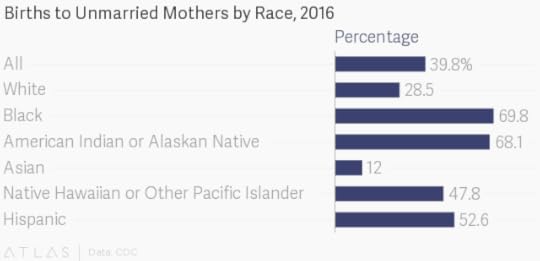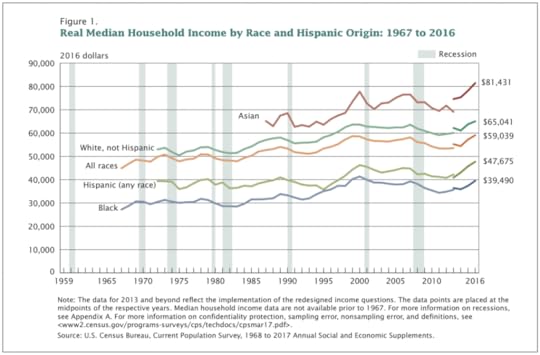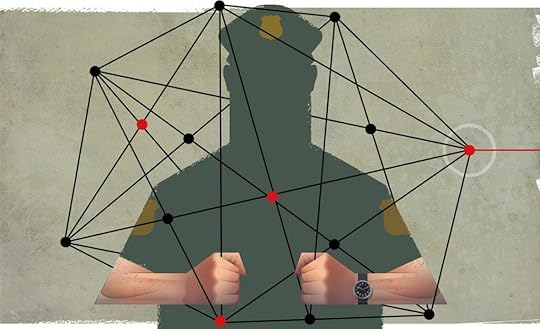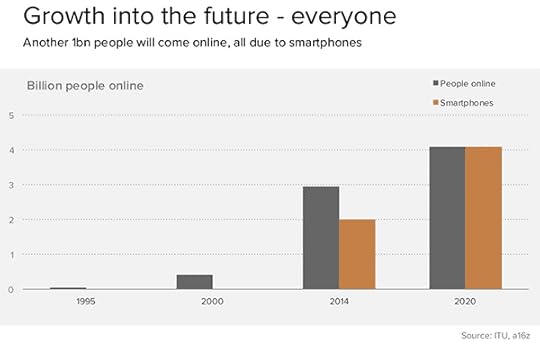Daniel Miessler's Blog, page 102
March 7, 2018
Apple’s Biggest Weakness is Siri, and It’s Becoming a Problem
You'll like the typography better at Apple’s Biggest Weakness is Siri, and It’s Becoming a Problem. —

Many think voice assistants are still in the toy category, but I’m convinced that they’ve recently become part of the underlying trust fabric for the Google, Apple, and Amazon brands.
Apple is known for its product quality, and up until now Siri has not been considered part of that equation. I think that’s changing, though, and it’s changing very quickly because she’s being compared to Assistant and Alexa who don’t make near as many mistakes.
Siri is far behind Google Assistant and Alexa in terms of the emotional trust she’s earned and squandered—and that’s about to become a serious handicap.
The first few times Siri made a catastrophic error, it was funny. You ask for pizza and she gives you Apple Map locations that are 2,500 miles away in Idaho—for an Indian restaurant. Or you ask to hear “Mars Volta”, and she gives you a list of web links related to dog kennels.
At first it’s funny. Then it’s less funny. Then it’s annoying. Then you’re simply not going to use her anymore. And if Alexa has better answers she’ll become the new default without you even making a conscious choice.
The problem for Apple is that someone preferring Alexa to Siri isn’t a digital assistant rejection—it’s a brand rejection.
Siri isn’t a feature of a few products; she’s the personification of Apple itself. And if she can’t answer basic questions, or does so in a noticeably worse way than the competition, then it’s going to cheapen every product that Apple makes.
As a long-time Apple fan and advocate, and someone who thinks digital assistants are the future of computing, I really want to see them aggressively attack the personal assistant space.
It’s not a toy. Not anymore. A brand’s digital assistant is its spokesperson at this point. The ever-present representative. Apple can’t afford to get lapped in this area. It’s too critical to overall brand trust.
I hope they massively improve Siri in a way that completely overtakes the competition. And I hope they do it soon.
— I spend between 5 and 20 hours on this content every week, and if you are the generous type and can afford fancy coffee whenever you want, please consider becoming a member for just $10/month… Begin Membership… Thank you!
March 6, 2018
Success in Life is Determined Most by Parental Culture, Not the Quality of Schools
You'll like the typography better at Success in Life is Determined Most by Parental Culture, Not the Quality of Schools. —

I think one of the least know truths in liberal circles is that family culture determines educational and financial success far more than school quality.
I was born and raised in the San Francisco Bay Area, and we’ve been raised to believe that good schools have lots of resources—like new textbooks, better teachers, etc.—and that students in poor schools fail because they don’t have these things.

Many learning centers like these are sustained exclusively by Asian families
It made sense to me, and as a liberal it made me angry. When I looked around at all the people without a good education, who were struggling through life in low-paying jobs with no benefits, I blamed the system for keeping the best schools for the rich.
But this isn’t just an incorrect understanding of the world—it’s poisonous and destructive one.
By Asian I mean both East Asian and Indian.
The truth is that Asian families have been going to the same schools as poor Whites, Hispanics, and Blacks for decades, but they’re absolutely thriving where others fail. A study looked at educational attainment and poverty between White and Asian students back in 2014 and found that Asians did far better in school despite being poorer, which they attributed to motivation and work ethic.
The poverty rates of Chinese and Vietnamese are higher than they are for whites. However the disadvantaged children of Chinese and Vietnamese immigrant families routinely surpass the educational attainment of their native-born, middle-class white peers.Source: Study examines achievement gap between Asian American, white students
They then talked about what is now understood to be the growth vs. fixed mindset.
Asian and Asian American youth are harder working because of cultural beliefs that emphasize the strong connection between effort and achievement,” the authors wrote. “Studies show that Asian and Asian American students tend to view cognitive abilities as qualities that can be developed through effort, whereas white Americans tend to view cognitive abilities as qualities that are inborn.Source: Study examines achievement gap between Asian American, white students
They went on to capture the elements of upbringing that made the difference.
Qualities such as attentiveness, self-control, motivation and persistence may be as important as cognitive abilities in positively affecting academic performance,” the authors wrote. “Asian American parents may engage in parenting practices that better cultivate these qualities that, in turn, enable their children’s academic success.Source: Study examines achievement gap between Asian American, white students
Cultural differences
I believe this is a matter of software (culture) and not hardware (race).
If we look at larger social behaviors between these cultures, we see profound differences in behaviors that are well-known to be associated with success and failure. Here are the unmarried birth numbers by group.

Then here’s educational attainment.

And here is income.


What we see here is that Asians are superior in every single measure: stable families, educational attainment, and then income. And they’re starting from the same elementary and high schools as everyone else.
What’s the point exactly?
Many at this point are checking my name to see if I’m Asian. You’re looking to see if I’m some sort of Neo-Conservative who’s about to talk about family values and the GOP. Or maybe there’s some other bias that will allow you to dismiss what I’m saying.
Please don’t do that.
The goal here is not to beat up those who don’t succeed educationally or financially. The goal is not to blame them. The goal is not to take blame away from bad schools and bad teachers. All those things are factors and should be improved.
The goal here is to realize that there is a solution to the achievement problem. It’s a solution that Asian families have been using for decades right in front of our eyes. The solution is to be frugal, to maintain a stable family, and to emphasize educational attainment as a prime directive.
It works. The numbers illuminate the path. It’s like a magical, all-powerful secret that nobody is paying attention to—either because it’s too obvious or because it requires hard work and it’s easier to blame external factors.
Summary
Asians are dominating all other groups in educational achievement and income.
They are doing this despite often coming from very poor upbringings.
Studies show that this is due to the values that parents give their children, namely grit and a growth mindset.
We therefore already know how to make all other groups successful as well: they simply have to emulate and adopt the same cultural software being used by these Asian families.
The problem isn’t external, it’s internal. The problem is bad software. The problem is bad culture.
And the solution is equally simple: we need to emulate what we know works. We need to run the same cultural software as the Asian families that are succeeding.
This should not be an open secret for the top 10% of families. Everyone should know about this software so that they can run it for their families as well.
Notes
I use Asians the example here because they’re exemplary in their achievement, but this same concept really applies to the entire educated and successful class. Anyone who has two educated parents who are demanding that their children be educated as well, and then guiding them into lucrative careers is also utilizing this same secret. And it’s wrong for it to be kept to just the top n%. This should be public knowledge and taught to every would-be parent.
— I spend between 5 and 20 hours on this content every week, and if you are the generous type and can afford fancy coffee whenever you want, please consider becoming a member for just $10/month… Begin Membership… Thank you!
Unsupervised Learning: No. 115
You'll like the typography better at Unsupervised Learning: No. 115. —
This week’s episode of Unsupervised Learning is now available. Subscribe below and get this episode’s podcast and newsletter.



This week’s topics: GitHub DDoS, Celebrite Attacks, AI warnings, Palantir in New Orleans, Grub Backspace, 4G attacks, Space Corps, Amazon wins Defense Department deal, tech news, human news, discovery, notes, recommendation, aphorism, and more…
— I spend between 5 and 20 hours on this content every week, and if you are the generous type and can afford fancy coffee whenever you want, please consider becoming a member for just $10/month… Begin Membership… Thank you!
March 3, 2018
When Companies Stop Caring About Data Loss, Risk Will Be Resilience-based and Focused on Business Disruption and Human Safety
You'll like the typography better at When Companies Stop Caring About Data Loss, Risk Will Be Resilience-based and Focused on Business Disruption and Human Safety.
—

In 2013, I looked briefly at how being hacked affects a company’s stock price. More people are looking at this now, and the evidence seems to show that there is often a major dip, but after 6 to 12 months it’s hard to even notice it happened.
I’ve been worried for a long time that we’re getting Breach Fatigue. If only a few companies have been hacked, then the public will punish them with a lack of trust and less business. But if everyone’s been hacked, then consumers don’t have the choice to move their business to the invincible option (since none exists).
So what then?
If everyone’s been hacked, and consumers come to accept that it’s inevitable, then what incentive will companies have to do security?

I think the answer is that there are different types of breach, and that even if companies stop caring about losing customer data, they’ll still care about two other types of security failure.
Business Disruption
Human Safety
When I first started thinking about this, I was thinking that these three things (Data Loss, Business Disruption, and Human Safety) might map to the CIA triad, with data loss being confidentiality. That would have been a neat essay, but I don’t think it’s true.
Losing customer data is one type of risk, and it’s the one that’s served as the fuel for the Information Security industry so far. But this is only because humans used to have some measure of privacy because it was so hard to move information from one place to another. To take an individual’s information and give it to 100 different companies all over the world would have been supremely difficult before computers. Now it takes seconds.
I don’t see the loss of privacy as a failure of infosec. I see it as an inevitability of a data-powered economy.
If the metaphor is the swimming pool, data isn’t the urine in the water that we can’t get out. It’s the water itself. You could remove it, but then what would you have? Ultimately, privacy requires an empty pool. And given a choice, people will gladly provide the water to swim.
Anyway, once the fear of losing our data has been played out—which I’d argue we’re getting close to—I think we’ll move to other types of risk.

Business Disruption is one. It applies, obviously to business, where disruption to business means lost revenue and potentially the company going out of business. So, malware infections, intellectual property loss, denial of service attacks, corruption of data (integrity attacks), could all be examples. But Disruption can also apply to society. Stopping transportation. Preventing purchases online. Etc. In both cases you’re talking about losing money, value, opportunity, and trust in the underlying system.
So Disruption of business and society is an ever-present threat, and is arguably the most likely and most common type of risk (once data loss becomes a non-issue).
Even more visceral, though, is Human Safety. As we connect more and more systems to the internet, and then connect those things to each other, we’re looking at automating and using AI to control more and more of the systems that surround humans both in transit and at rest.
The opportunity for harm—both accidental and malicious—is about to grow exponentially, and this will make up the other major type of risk that companies and societies are looking to reduce.
Resilience is security
 Begin Membership…
Begin Membership…
Thank you!
Safe Schools Are the New Luxury Item Because Now Only the Rich Have Stable and Present Families
You'll like the typography better at Safe Schools Are the New Luxury Item Because Now Only the Rich Have Stable and Present Families. —

We just saw another school shooting—this time in Parkland, Florida.
The shooter was some kind of foster kid with serious hate in his heart, obviously. The foster parents were devastated, and evidently tried to give him love, but the damage seems to have been too great.
He had a history of violence problems, a fascination with guns and knives, and was evidently loose with racist language. What seemed to set him off was a rejected lover getting with a Hispanic guy, which is strange since he himself has a Hispanic name and appearance.
Anyway, the point is that he was a foster child due to some sort of circumstance, he was bullied, and he became enraged enough due to jealousy over an ex-girlfriend to murder many people with a rifle.
The larger problem here isn’t that he did this. It’s that there are tens, or dozens, or hundreds, or thousands of other young men across the country who are somewhere close to this cocktail of volatility.
It starts at home. It starts with the lack of a stable, loving family.
If this kid had a present family that loved him, and he went through he same trouble with an ex, he’d have had that pain absorbed by them, and it would have come back as love. It still would have hurt, but he’d have gotten through it. As most kids do, in most families.
The problem is that, in America, more and more families are fragmented and distant to the point of either being absent or even worse—where the parents are essentially damaged kids themselves adding even more stress and pain to the child. They let them raise themselves. They beat them. They abandon them to be raised by grandparents or other family members.
Or maybe they’re actually decent parents (or one parent), but they’re so busy working low-income jobs that they’re not there to raise the kid. So they’re raised by poisoned peers and the street basically, with similar results.

This is a class issue. And the classes are separating.
I’m aware that there is a long history of rich parents ignoring their children, who grow up to be unhappy, or overly demanding parents producing unhappy adults, but when have you seen one of these kids shoot up a school?
The thing that rich families tend to have is two parents at home who absolutely love their kids, and spend excessive time and money on making sure they have what they want. This is the new signature of the rich, actually, whether they’re Asian, Indian, Jewish, or any other group—they start planning for their success long before conception.
They meticulously pick out every piece of furniture. They pick jobs for schools. They pick schools for college chances. They pick colleges for their eliteness. They basically plan, with ruthless precision, exactly how to make their kids part of the class that looks down on others.
Find any upscale neighborhood in the Bay Area, or anywhere else, and this is what you see. A young, educated husband and wife working tirelessly to manufacture a perfect runway for the perfect child.
Parkland is actually quite rich, but the shooter was adopted so definitely didn’t have the stable, present family I’m talking about.
Now lets go to their school. It’s likely private, but if it’s public it’s in such a rich neighborhood that all the parents are educated and successful.
How many shootings do we have where the shooter was raised by two, stable parents who loved them and did all they could to make them successful?
I’ve not done the research, but I’m guessing not many.
The country is not fragmenting by race as much as people think it is. It’s separating by class.
There are rich neighborhoods and rich private schools where the price of admission (usually) automatically filters for loving parents who care deeply about their kids. There are bad parents who slip through and just do whatever for their spoiled kids, but that’s likely to produce depression and drug use—not homicide.
And so kids who go to those schools will be safe. And kids who go to “regular” schools are surrounded by kids who are neglected, who have slightly older kids for parents, and who therefore get bullied with no emotional safety net at home to catch them.
Their sadness grows. Their depression grows. And for some of the boys, their hatred grows. And the only way to get noticed is to take a singular Alpha Male action to silence his opponents.
And that’s who “regular” kids have to go to school with.

Rich and educated parents actually don’t have a marriage crisis the way regular (poor) people do. Divorce rates are extremely centered around low-income families.
On all sides they’re surrounded by potential powder kegs and nuclear bombs. Regular people can’t afford college. Regular people aren’t getting married. Regular people can’t afford to survive because the middle-class jobs are evaporating.
So the parents are miserable. They’re divorcing. And the kids are stuck in the middle, often destined to do exactly as their parents did.
And when your kid is in a “regular” school, in America, in 2018, that’s who they’re sitting next to. Hundreds or thousands of kids who might have an absolutely abysmal life at home. No hope. No love. No opportunity.
Only despair and rage.
Education, a good diet, healthcare, solid news sources—all these things have become luxuries. And now we can add safety for kids in school to the list.
Notes
If you object to this because you didn’t grow up rich and you still have a stable and loving family, relax. My family was not rich either, and it was very loving and very stable. There are many exceptions to this, and those exceptions were a lot easier to come by 30 years ago than they are now. As the economy and life get harder, so does the creation of a loving family.
— I spend between 5 and 20 hours on this content every week, and if you are the generous type and can afford fancy coffee whenever you want, please consider becoming a member for just $10/month… Begin Membership… Thank you!
Safe Schools Are the New Luxury Item Because Only the Rich Have Stable and Present Families
You'll like the typography better at Safe Schools Are the New Luxury Item Because Only the Rich Have Stable and Present Families.
—

We just saw another school shooting—this time in Parkland, Florida.
The shooter was some kind of foster kid with serious hate in his heart, obviously. The foster parents were devastated, and evidently tried to give him love, but the damage seems to have been too great.
He had a history of violence problems, a fascination with guns and knives, and was evidently loose with racist language. What seemed to set him off was a rejected lover getting with a Hispanic guy, which is strange since he himself has a Hispanic name and appearance.
Anyway, the point is that he was a foster child due to some sort of circumstance, he was bullied, and he became enraged enough due to jealousy over an ex-girlfriend to murder many people with a rifle.
The larger problem here isn’t that he did this. It’s that there are tens, or dozens, or hundreds, or thousands of other young men across the country who are somewhere close to this cocktail of volatility.
It starts at home. It starts with the lack of a stable, loving family.
If this kid had a present family that loved him, and he went through he same trouble with an ex, he’d have had that pain absorbed by them, and it would have come back as love. It still would have hurt, but he’d have gotten through it. As most kids do, in most families.
The problem is that, in America, more and more families are fragmented and distant to the point of either being absent or even worse—where the parents are essentially damaged kids themselves adding even more stress and pain to the child. They let them raise themselves. They beat them. They abandon them to be raised by grandparents or other family members.
Or maybe they’re actually decent parents (or one parent), but they’re so busy working low-income jobs that they’re not there to raise the kid. So they’re raised by poisoned peers and the street basically, with similar results.

This is a class issue. And the classes are separating.
I’m aware that there is a long history of rich parents ignoring their children, who grow up to be unhappy, or overly demanding parents producing unhappy adults, but when have you seen one of these kids shoot up a school?
The thing that rich families tend to have is two parents at home who absolutely love their kids, and spend excessive time and money on making sure they have what they want. This is the new signature of the rich, actually, whether they’re Asian, Indian, Jewish, or any other group—they start planning for their success long before conception.
They meticulously pick out every piece of furniture. They pick jobs for schools. They pick schools for college chances. They pick colleges for their eliteness. They basically plan, with ruthless precision, exactly how to make their kids part of the class that looks down on others.
Find any upscale neighborhood in the Bay Area, or anywhere else, and this is what you see. A young, educated husband and wife working tirelessly to manufacture a perfect runway for the perfect child.
Parkland is actually quite rich, but the shooter was adopted so definitely didn’t have the stable, present family I’m talking about.
Now lets go to their school. It’s likely private, but if it’s public it’s in such a rich neighborhood that all the parents are educated and successful.
How many shootings do we have where the shooter was raised by two, stable parents who loved them and did all they could to make them successful?
I’ve not done the research, but I’m guessing not many.
The country is not fragmenting by race as much as people think it is. It’s separating by class.
There are rich neighborhoods and rich private schools where the price of admission (usually) automatically filters for loving parents who care deeply about their kids. There are bad parents who slip through and just do whatever for their spoiled kids, but that’s likely to produce depression and drug use—not homicide.
And so kids who go to those schools will be safe. And kids who go to “regular” schools are surrounded by kids who are neglected, who have slightly older kids for parents, and who therefore get bullied with no emotional safety net at home to catch them.
Their sadness grows. Their depression grows. And for some of the boys, their hatred grows. And the only way to get noticed is to take a singular Alpha Male action to silence his opponents.
And that’s who “regular” kids have to go to school with.

Rich and educated parents actually don’t have a marriage crisis the way regular (poor) people do. Divorce rates are extremely centered around low-income families.
On all sides they’re surrounded by potential powder kegs and nuclear bombs. Regular people can’t afford college. Regular people aren’t getting married. Regular people can’t afford to survive because the middle-class jobs are evaporating.
So the parents are miserable. They’re divorcing. And the kids are stuck in the middle, often destined to do exactly as their parents did.
And when your kid is in a “regular” school, in America, in 2018, that’s who they’re sitting next to. Hundreds or thousands of kids who might have an absolutely abysmal life at home. No hope. No love. No opportunity.
Only despair and rage.
Education, a good diet, healthcare, solid news sources—all these things have become luxuries. And now we can add safety for kids in school to the list.
Notes
If object to this because you didn’t grow up rich and you still have a stable and loving family, relax. My family was not rich either, and it was very loving and very stable. There are many exceptions to this, and those exceptions were a lot easier to come by 30 years ago then they are now. As the economy and life get harder, so does the creation of a loving family.
—
I spend between 5 and 20 hours on this content every week, and if you are the generous type and can afford fancy coffee whenever you want, please consider becoming a member for just $10/month…
Thank you!
February 19, 2018
Unsupervised Learning: No. 113
You'll like the typography better at Unsupervised Learning: No. 113.
—
This week’s episode of Unsupervised Learning is now available. Subscribe below and get this episode’s podcast and newsletter.



This week’s topics: Parkland tampering, Avoid Huawei, Bongo S3, Facebook 2FA Spam, Android Cryptojacking, Spyware Hacking, Password Dating, Technology News, Human News, Trends, Ideas & Analysis, Data & Statistics, Discovery, Recommendations, Aphorism, and more…
—
I spend between 5 and 20 hours on this content every week, and if you are the generous type and can afford fancy coffee whenever you want, please consider becoming a member for just $10/month…
Thank you!
Expect Deep Learning to be Used By Schools to Predict Violence
You'll like the typography better at Expect Deep Learning to be Used By Schools to Predict Violence.
—

image by val mina
Get ready for Palantir-style, AI-based violence prediction on school campuses. There are far too many situations where it happens and basically everyone knew that person would be the perpetrator.
This should be used for social work as well, but the more people who get to use it the more people get the data.
If the perpetrator is often that obvious to students and faculty, deep learning can probably help identify them as well.
Basically, data collection is about to become the new American religion. Combined with machine learning it will improve customer experiences, improve business outcomes, and predict violence outbreaks.
That’s the American trifecta.
—
I spend between 5 and 20 hours on this content every week, and if you are the generous type and can afford fancy coffee whenever you want, please consider becoming a member for just $10/month…
Thank you!
February 18, 2018
Information Security Professionals Cannot Be Luddites
You'll like the typography better at Information Security Professionals Cannot Be Luddites.
—
I'm starting to realize that many infosec people are luddites rather than technologists.
— ᴅᴀɴɪᴇʟ ᴍɪᴇssʟᴇʀ (@DanielMiessler) February 18, 2018
Not a good look for us.
We need to be the shepherds, not the crazy people belting out scripture at people on the street.
I just posted this on Twitter after being frustrated again by how a lot of my fellow security folk are talking about technology.
They make fun of it. They ridicule it. They bash it. They tell people not to use it. They claim it’ll never get better. And by extension they are also pointing that scorn at anyone who would take an alternative opinion.
If I were looking for help with new technology, I wouldn’t want to take advice from someone on the Internet of Things, or Machine Learning, when I know they secretly hate it and wish it didn’t exist. And that’s where so many people in infosec are right now.
To many people in infosec are basically teaching safe sex through abstinence, and it’s irresponsible.
Anyone who finds sex to be dirty and immoral is not qualified to teach sex education. And anyone who finds new technology to be demonic and scary is not qualified to prepare us for it.
The standard for InfoSec professionals on this account should be two-fold:
You should be a genuine technologist who understands, appreciates, and enjoys technology in its various forms.
You should be intimately aware of how technology can cause harm, and able to help others navigate its strengths and weaknesses.

We’re protectors and advisors, and our role is to help extract the good that technology can bring the world while helping people avoid the potential negatives.
If you see security people telling new technologies to get off their lawn, do us all a favor and call them out on it. Remind them that they should be technologists first, and that if they don’t like technology anymore then it’s time for them to move along and make way for those who do.
Disdain and fear is not going to make us more prepared for what’s coming. For that we need honesty, courage, and optimism.
Be that person, and ask others in the industry to be that person as well.
—
I spend between 5 and 20 hours on this content every week, and if you are the generous type and can afford fancy coffee whenever you want, please consider becoming a member for just $10/month…
Thank you!
February 12, 2018
Unsupervised Learning: No. 112
You'll like the typography better at Unsupervised Learning: No. 112.
—



This post contains the supplemental content for this week’s episode of Unsupervised Learning. Some people prefer fewer stories in each show while others prefer more, so I’ve solved that problem by keeping the main show tightly curated and making all the extra stories and links available to members here. It’s basically an unabridged version of the newsletter for members.
Chinese AR glasses, Cisco ASA flaws, Russian Nuclear Cryptomining, Marine quadcopters, POS Skimmers, Chrome HTTP, technology news, human news, discovery, notes, recommendations, and the aphorism of the week…
Become a Member to Get This Week’s Supplemental Content
—
I spend between 5 and 20 hours on this content every week, and if you are the generous type and can afford fancy coffee whenever you want, please consider becoming a member for just $10/month…
Thank you!
Daniel Miessler's Blog
- Daniel Miessler's profile
- 18 followers



